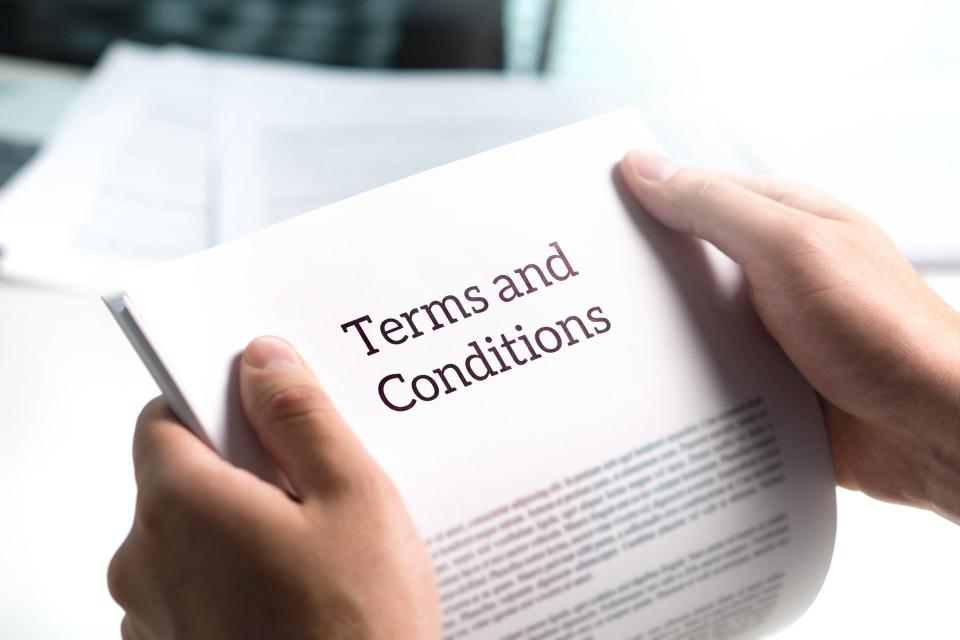I've signed two NDAs. Let's ban them so we can speak the truth about workplace bullying

It’s another anti-bullying week and we will no doubt see a flurry of social media content from people and organisations sharing stories and tips to deal with abuse. However, we are only seeing the tip of the iceberg, particularly when it comes to workplace bullying.
So many people are forced to sign NDAs (non-disclosure agreements) to protect the reputation of organisations involved in bullying complaints – and this is precisely why we’re not getting the full picture.
It's now over a year since allegations were made over Sir Philip Green's bullying, which he has denied, and his use of NDAs. And it's also a year since employees of the House of Commons demanded an investigation into current and historic cases of bullying and harassment. But what's changed? Well, as far as I know, I'm still legally unable to speak the truth, so I'm sure it's the same for many others in my position.
As somebody who has had to sign two NDAs to be compensated for the jobs I lost and the health implications I suffered due to workplace bullying, I feel passionately that the use of NDAs is wholly wrong. Of course, I can’t go into any detail about the what, the when and the who, but I feel absolutely within my rights to campaign against the use of NDAs and to talk about the impact that bullying and signing NDAs has had on me.
Firstly, as victims of bullying, we are led to believe that we are signing an NDA to receive a benefit. As if it’s a two-way, mutual exchange between ourselves and the organisation in question. But this is hugely inaccurate.
If, like me, you have been placed in a helpless situation where you either have to go into the very place that is destroying your health, your confidence and your soul, or be hounded at home by phone and email for not going into the office because home-working is, apparently, no longer an option for you, you become caught in a catch 22.
You tell HR you want to do your job, because you enjoy it, but you want to be able to do it without being reduced to tears and without having to pop a propranolol before meetings to stop the palpitations and shakes. However, you are more or less told that’s not an option. So you ask to work at home. And then you are more or less told that is also not an option (i.e. you are hounded when you do).
So what are you left with? You either need to be compensated for losing the job you loved because of the acts and personal behaviours of certain powerful individuals, or you fall flat on your arse, lose your house and the health of yourself and your family is impacted even more.
From my point of view, I had to look at what I was potentially going to lose if I walked away. I had to put myself and my family above my principles, especially as it was at a time when members of my close family were also struggling with health problems. My salary was the only salary coming in at that time. We all depended upon it, and the only way I could keep everything together was to sign an agreement to say that I wouldn’t tell anybody about what had happened to me.
I was lucky in that I secured another job, especially given a significant proportion of the money I received was spent on private healthcare due to the declining health of myself and my family.
I often dream of winning the lottery so I can finally tell the truth and shout out the names of the individuals who bullied me. So I can call them out and not be scared about not having the funds to pay them back if they took me to court. So something can be done about the toxic environment in which they are working; one which HR, seemingly, has no control over. And so it doesn’t happen to more and more people. But that’s not likely to happen.
NDAs need to be banned. Grievances should be dealt with by external investigators in order to be managed objectively. And nobody should be stopped from speaking the truth.
The laws, as they currently stand, only protect the organisations where bullying takes place. It means that when you’ve left somewhere, you have to make vague excuses to a potential employer about your past, and you feel ashamed, as if you have a dirty secret to hide. And the problem is potentially huge. Of the completed conciliation cases logged with the Advisory, Conciliation and Arbitration Service in 2017/18, almost a third took no further action, and 40 per cent settled. That's a huge number of cases where the conclusion never saw the light of day.
The gagging clause in the contract is completely inappropriate and damaging, not only to me, but to all employees. Amid a culture of silence, employees are unable to hear the truth: company practices won’t change and perpetrators will never be held responsible.
I would love to hear about plans for these highly inappropriate NDAs to be outlawed as part of the general election campaigning. If we can bring in external investigators, we can bring about action earlier in the process and stop the need for costly and stressful tribunals.
It’s time for bullies, and the organisations they work for, to be held to account.
Read more
Non-disclosure agreements to silence harassment are ‘wrong’- Tory MP
Sajid Javid under pressure over Windrush victims' 'gagging clauses'
Home Office 'gagging' Windrush victims offered fast-track compensation

 Yahoo News
Yahoo News 